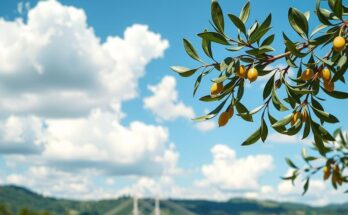Sue Williamson, a prominent anti-apartheid artist, targets Donald Trump and Elon Musk in light of their criticisms of South African policies. As she prepares for her retrospective exhibition, Williamson highlights the need for recognition of historical injustices, particularly in land ownership. Her work underscores the importance of understanding history in the quest for social justice.
Sue Williamson, an anti-apartheid artist with a career spanning over fifty years, is preparing for her first retrospective exhibition while taking aim at US President Donald Trump and billionaire Elon Musk. Williamson believes both are attempting to undermine South Africa’s credibility following recent political discourse, particularly regarding South Africa’s legal case against Israel concerning allegations of genocide against Palestinians in Gaza.
Musk recently criticized South Africa’s policies on social media, while Trump responded by signing an executive order to cut aid to South Africa, claiming the country practices racial discrimination against white Afrikaners. The executive order further accused South Africa of having aggressive diplomatic stances, particularly regarding Israel, in the context of international legal proceedings.
Williamson articulated concerns that both Trump and Musk are engaged in “gaslighting”, undermining South Africa’s ability to contest serious accusations in international courts, and causing negative perceptions about the nation. She stated, “They’re trying to set it up that South Africa is not a credible country to bring such a case.”
Amid these political tensions, Williamson criticized claims by the US regarding land expropriation in South Africa, asserting that the process is thoughtful and necessary for historical justice. She noted that recent legislation empowering land expropriation without compensation is a step towards rectification of injustices dating back to the 1913 Land Act, which stripped land rights from black farmers.
Williamson began her artistic journey while working in advertising in New York but shifted her focus to activism upon returning to South Africa. Inspired by the Soweto uprising in 1976, she became active in the Women’s Movement for Peace, advocating for multiracial rights in public spaces and opposing government policies targeting disenfranchised communities.
Throughout her artistic career, Williamson has focused on the impact of apartheid policies on non-white communities. She created works that documented the painful realities faced by these communities, such as her installation “The Last Supper”, which featured materials from demolished homes in a formerly designated white-only area of Cape Town.
Her retrospective exhibition aims to provoke reflection among journalists on the lack of government action in rebuilding the District Six area. One of her notable works from 2013 depicts the shared histories of anti-apartheid women, illustrating the ongoing relevance of these narratives and the necessity for young people to understand their own historical context.
In conclusion, Sue Williamson’s retrospective exhibition highlights the ongoing struggles against inequality in South Africa while addressing contemporary political criticisms from figures like Donald Trump and Elon Musk. Her artistic endeavors serve not only as advocacy for historical justice but also as a vehicle for societal reflection on past grievances. Williamson emphasizes the importance of understanding one’s history to shape a just future.
Original Source: www.theguardian.com




